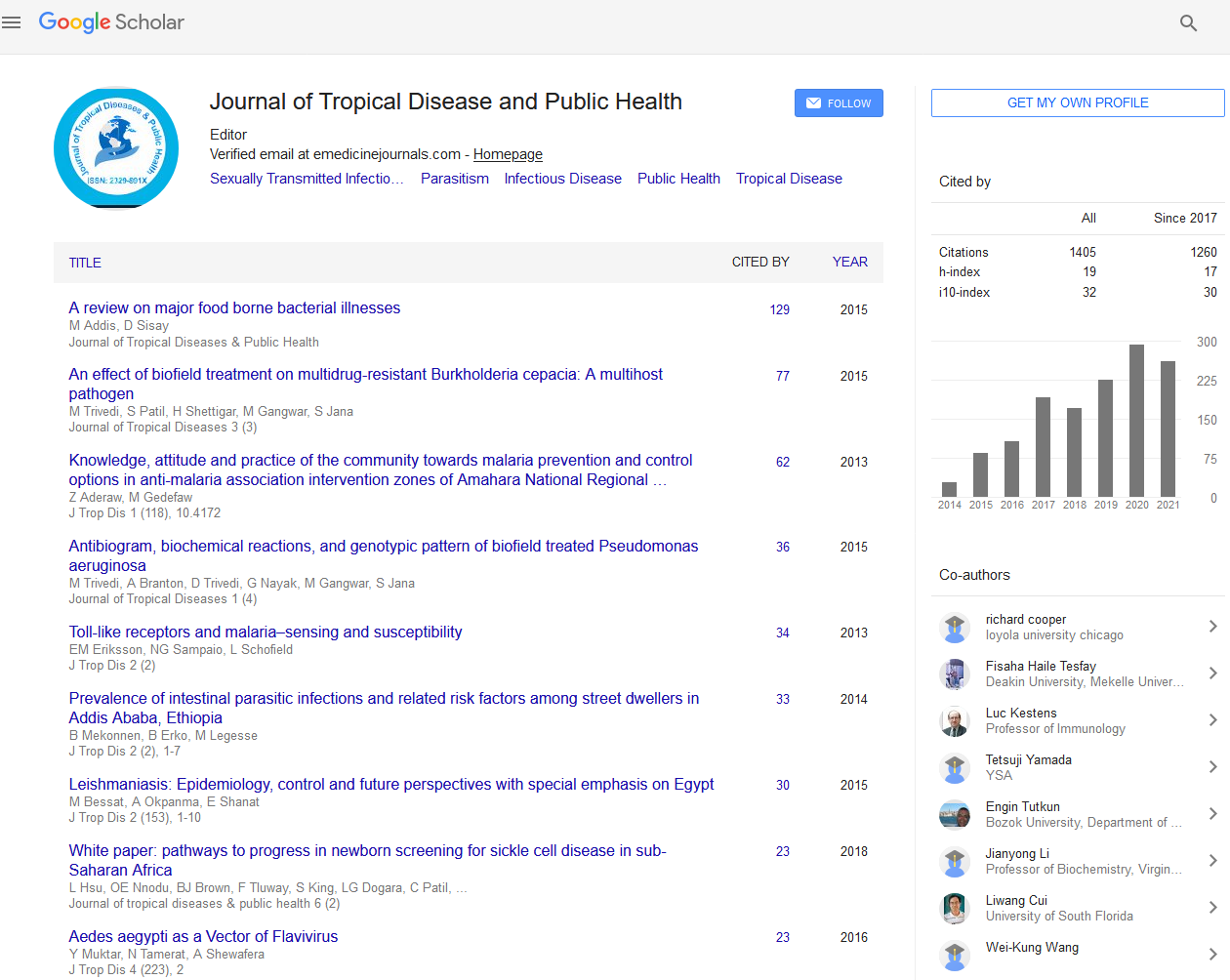Indexed In
- Open J Gate
- Academic Keys
- ResearchBible
- China National Knowledge Infrastructure (CNKI)
- Centre for Agriculture and Biosciences International (CABI)
- RefSeek
- Hamdard University
- EBSCO A-Z
- OCLC- WorldCat
- CABI full text
- Publons
- Geneva Foundation for Medical Education and Research
- Google Scholar
Useful Links
Share This Page
Journal Flyer

Open Access Journals
- Agri and Aquaculture
- Biochemistry
- Bioinformatics & Systems Biology
- Business & Management
- Chemistry
- Clinical Sciences
- Engineering
- Food & Nutrition
- General Science
- Genetics & Molecular Biology
- Immunology & Microbiology
- Medical Sciences
- Neuroscience & Psychology
- Nursing & Health Care
- Pharmaceutical Sciences
Abstract
Antiretroviral therapy adherence among patients enrolled before and after the initiation of universal test and treat strategy: A comparative cross-sectional study.
Yitayish Damtie*, Dabere Nigatu, Fentaw Tadese and Melaku Yalew
Background: Poor adherence becomes a critical problem in managing the Human Immunodeficiency Virus (HIV)-infected patients receiving Antiretroviral Therapy (ART). Evidence of adherence to antiretroviral therapy after the initiation of the Universal Test and Treat (UTT) strategy was limited in Ethiopia. Hence, this study aimed to compare adherence to antiretroviral therapy before and after the initiation of universal test and treat strategy and factors affecting adherence among HIV positive adults in Dessie town.
Methods: A comparative cross-sectional study was conducted on 594 HIV positive adults selected using systematic sampling. Interview and patient record review were used to collect data. The data were analyzed using SPSS version 23. Bi-variable and multivariable logistic regression models were used to identify factors associated with ART adherence. Adjusted Odds Ratio (AOR) with a 95% Confidence Interval (CI) was used as a measure of association. Statistical significance was declared at a P - value less than 0.05.
Result: The proportion of ART adherence among patients enrolled before and after the initiation of UTT strategy was 55.4% (95% CI: (49.9%, 60.6%)) and 49.3% (95% CI: (43.5%, 54.8%)) respectively. Absence of depression (AOR =3.87, 95% CI: (1.96, 7.64)), eating three or more meals per day (AOR =2.65, 95% CI: (1.08, 6.49)) and absence of concomitant illness (AOR =0.42, 95% CI: (0.23, 0.76)) were factors associated with better ART adherence.
Conclusion: ART adherence was not affected by the introduction of the UTT strategy in HIV treatment and care program. Depression, meal frequency, and concomitant illness were factors associated with ART adherence. Efforts should be made to improve adherence through tailored interventions to overcome factors linked to poor adherence.
Published Date: 2020-12-09; Received Date: 2020-11-20


